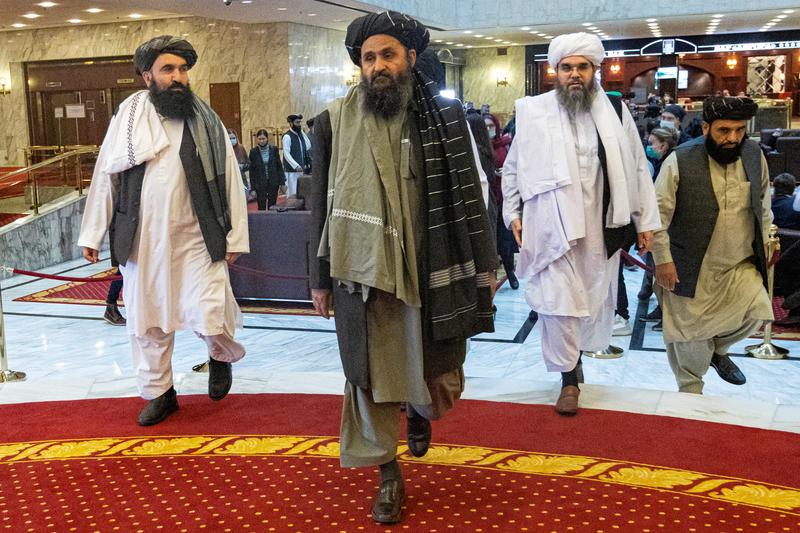Islam envisaged concepts with the onward march in the affairs of life to move in the practical affairs of the framework of existence. Islam provided guidelines, principles and regulations to excel in the performance of duties to present an ideal model of a human being. Thus, it had to combine the spiritual and practical aspects of the faith in order to bring close proximity among the human beings and organize a more humane society based on equality and affection. In this regard, Monotheism provides the basic purpose to the structure of Islam. The acceptance and adherence of the principle of Monotheism envisages the existence of God as a unique and unparalleled entity. The basic concept and ideological fountainhead of Islam is the Monotheism – the Sovereign authority of the Universe, animate as well as inanimate.
Over hundreds of years, the debate of overarching aspects of this concept has been going on within and outside Islamic societies and systems. It is important to underline here that this concept does not have any scope of artificial division among human beings on the basis of color, language and assets, and leaves them completely united. The recognition and submission to God is judged on the basis of actions, performance and character of human beings. In other words, Monotheism provides a pillar to universe to maintain order, tranquility, brotherhood and affection. There is no scope for conflict, confrontation and bloodshed in following this very principle.
It may sound curious that in essence this principle is the genesis of all religions of the world. It is a matter of research and analysis that in spite of this guiding principle, Muslim states and other belligerent modern states have been at war or confrontation with each other in one form or the other. Is it inherent in human nature or is it the persona of groups of people? Or is it both, anthropological and a genetic issue which needs to be addressed?
Monotheism as a bedrock of Islam, as historical events reveal, did not remain immune from divisions and conflicts on this issue. Groups of people whose outlook remained tethered to their customs and clans which Prophet Mohammed had assiduously struggled to obliterate drifted away, which gradually took the form of separate sects and cults in opposition to Islam.
This development emerged after the demise of the Prophet and gained momentum with the demise of first Caliph, Abu Bakar, leading to the assassination of three leading Caliphs of early Islamic phase: Omar, Uthman and Ali, known as Khul-faie-Rashidin. The close associates of Prophet Mohammad were keen to stem this rot before it would became a formidable force. However, it seems that the Caliphs were reluctant to start a confrontation in the nascent phase of Islam. Ali, the fourth Caliph had to fight a war with Ayesha, the widow of Prophet Mohammad on this issue and this war is known as ‘Jang-e Jamal’ or (War of Camels). In this war, Ayesha personally participated.
The prevalence of Islam was taking place in the Arab peninsula in the backdrop of clan and tribal classes. Prophet Mohammad himself belonged to Banu Hashmite clan which was known as an affluent noble class of higher rung of society. He was from Quraysh tribe of Hashmite clan. The other clan which were the cousins of Prophet Mohammad was known as Banu Umaya, who shared power but raised the controversy and led to the assassinations. In fact, the principle to rule the people laid down by the Prophet was the consensus of people in choosing a ruler. In this process, he wanted the hereditary rule as well as authoritarian tribal and clan customs of ruling dynasties to wither away. The ruling individuals or groups should belong to ruling class but they should be elected on the basis of general consensus and equally in view of their human qualities and capacities to administer and follow the principles of justice and equality.
It appears that the tribal and clan politics in Muslim World continues to prevail effectively and permeates every level of society.
The biggest event relates to the emergence of Amir Maviya, ruler of Kufa (Baghdad, Iraq) which led to the division of Sunni and Shia sects in Islam. Interestingly, many followers of Prophet Mohammad who later became Muslims had fought Prophet Mohammad in the first war of Jang-i-Badar (War of Badar) between Muslims and non-Muslims.
In the confrontation between Imam Hussain, grandson of Prophet Mohammad and governor of Kufa deputed by Amir Maviya, many commanders boasted that they were taking advantage of the assassination of their ancestors who were killed in the war of Badar. It is obvious that many important positions were assigned by Maviya to the persons from the tribe of Banu Umaya. Amir Maviya is credited to have spread Islam beyond the borders of Arabia to Afghanistan and Turkmenistan.








